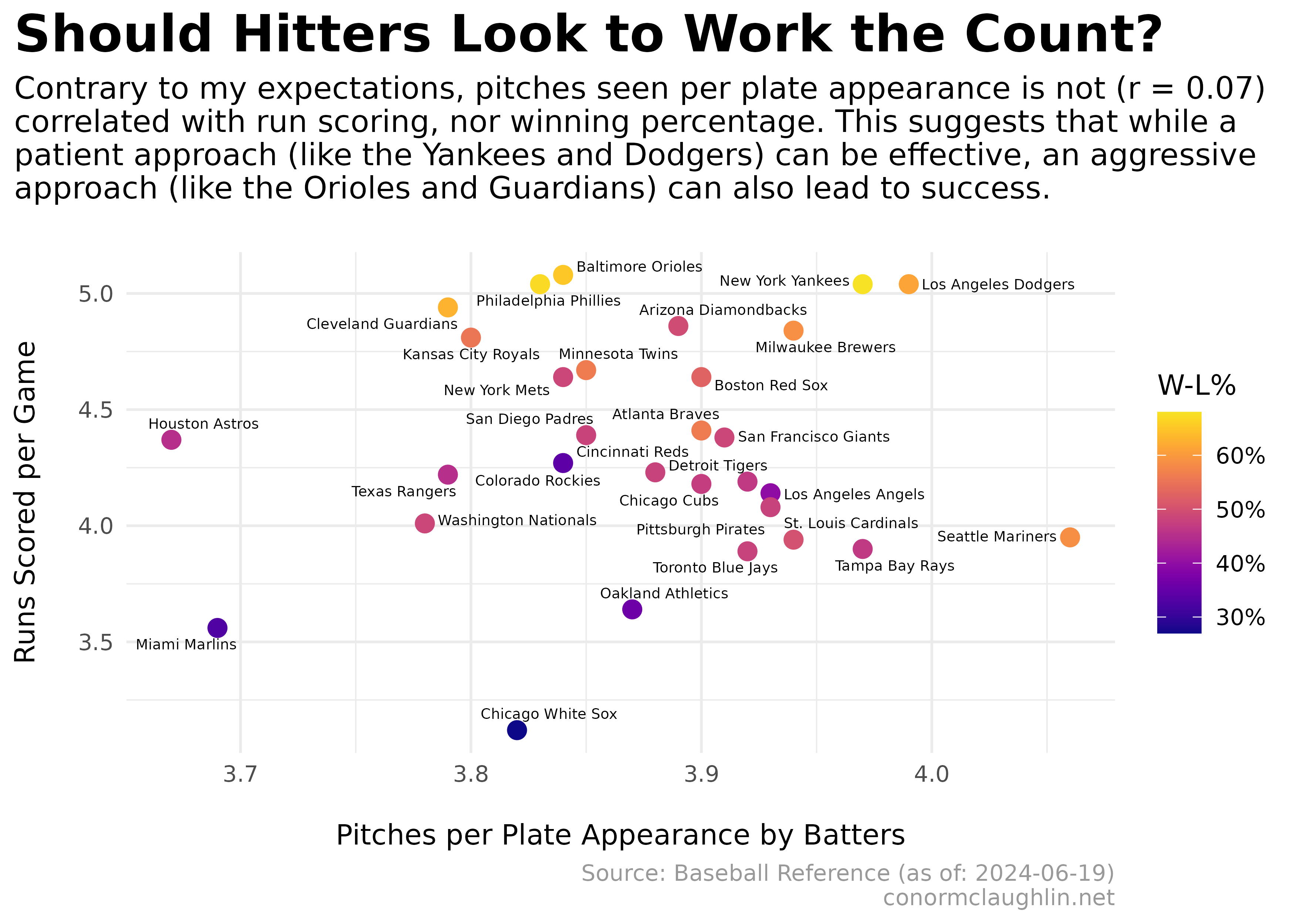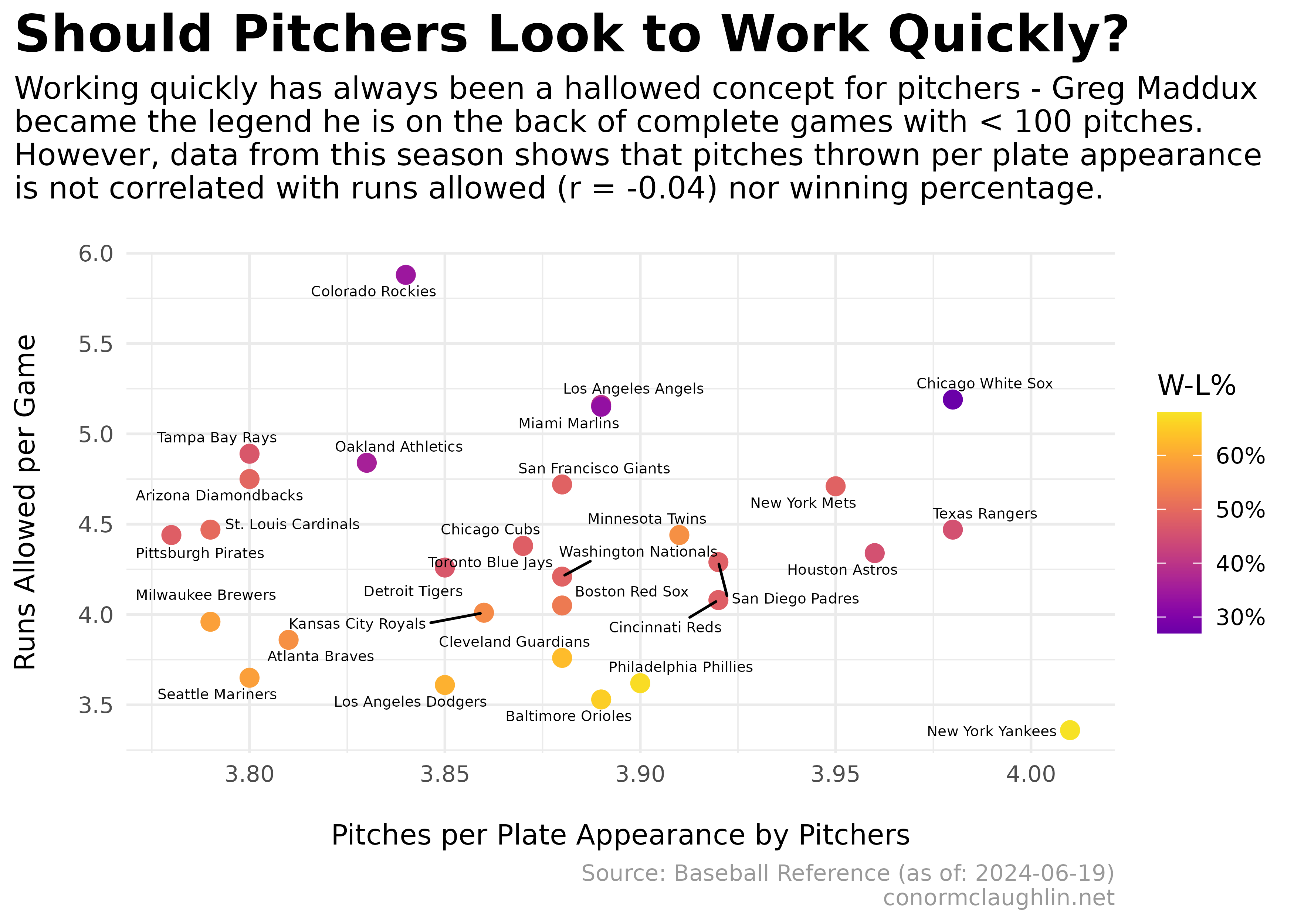Despite a surprisingly-solid record of 36-37 out of the gate for the Washington Nationals (thank you pitching staff!), one recurring theme has bugged me: a lack of patience by our hitters.
Too often, I’ve felt, have they swung at sub-optimal pitches early in at-bats, leading to mediocre contact and letting opposing pitchers skate through the game with low pitch counts. “If only they could be patient like the Yankees!”, I’ve murmured to myself, too many times to count - “then they’d be able to get the right pitches to drive”.
The data supports this comparison, with the Yankees facing 3.97 pitches per plate appearance and scoring 5.04 runs per game, while the Nats score only 4.01 runs per game on 3.78 pitches per plate appearance.
However, as I looked into this trend for all clubs across the league, I found an interesting finding emerge: the relationship between “patience” and run-scoring is anything but clear-cut. Indeed, it seems that the Nationals vs Yankees example is not representative of the league as a whole, and that there is not a clear relationship (r=0.07) between pitches seen per plate appearance and run scoring!

Looking at this from the other perspective, that of the pitcher, further disorients! My whole life, I’ve thought of “working quickly” as an unalloyed positive for pitchers - long at-bats create more opportunities for mistakes, balls, and walks, so attacking batters directly is the best path to success.
Again, though, we find this season shows no relationship (r=-0.04) between pitches thrown per plate appearance and runs allowed!

I’m still coming to grips with what this means, and to be totally honest, am hoping there might be another element obscuring the true causality here! Which I shall think on…
But in the meantime, this data has prompted me to re-evaluate my prior expectation that long at-bats are good for hitters, and quick at-bats are good for pitchers. Instead, it seems that teams have found ways to be successful with a variety of approaches: aggressive or conservative in the batters box, and quick vs slow on the rubber. It’s probably better for baseball this way - Yankee games always seem to take 20 minutes longer than the rest of the league!